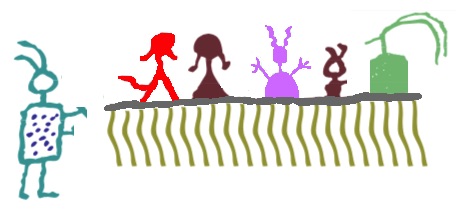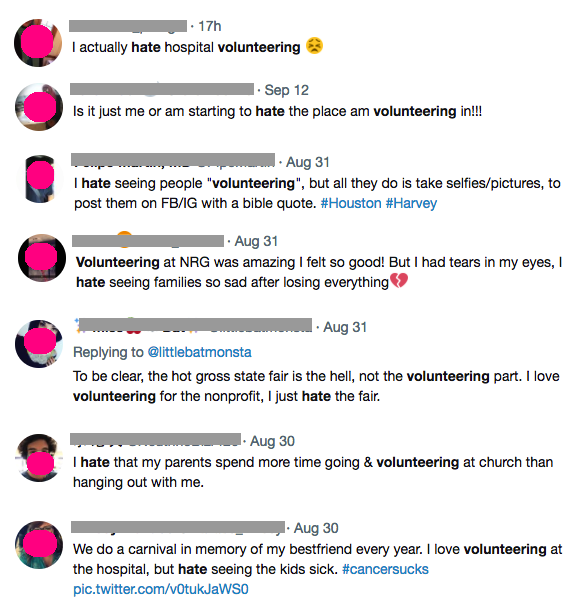
Back in the late 1990s, I was invited to speak and train at what I was told was a state PTA conference in a state different from where I was living. The list of other invited speakers was shared with me by the organizer and I was deeply impressed and honored to be a part of such a lineup. I wasn’t paid by the organizer for the work, but that was fine – I saw it as a part of what I was already being paid for in my job directing the Virtual Volunteering Project. All of my travel and hotel expenses were to be paid.
The date arrived, I flew to the location, I picked up my rental car and I drove to my hotel. The next day, I drove to the location of the conference, and as soon as I walked in, I realized things were not what they had seemed via email and phone calls from the organizer: this was not, in fact, an official PTA conference: a representative from the state PTA approached me to say that they didn’t know about the conference being organized in their name by this local member until the last minute. The organizer was putting all of the expenses on her credit card, expecting the state PTA to reimburse her, and she had no signed contract with them for anything. The conference was in an un-airconditioned junior high school in the middle of summer, in a state notorious for its heat and humidity, the seating was for children, not adults, and there was an un-airconditioned school bus for taking attendees around to the city’s sights that afternoon. The organizer showed signs of serious emotional instability that I won’t list here. After the first day, most of the speakers and half of the attendees had left, many of them asking me if I was going to stay or flee. I stuck it out over two days and nights, fulfilling my commitment to deliver workshops to the few that stayed and wanted to hear me. I left and never heard from the organizer again.
Misrepresentation and deliberate fraud in the nonprofit sector aren’t unusual. Sometimes, the person perpetuating the misrepresentation isn’t really aware that what they are claiming is unethical, inappropriate, or maybe even illegal – I think that was the case with the aforementioned conference manager. I’ve been contacted by people saying they work for a certain large, well-known newspaper who, in fact, have never had anything published in that newspaper or any other credible daily, but they felt like they could with the story they wanted to do with my help, that the newspaper knew nothing about – I am not sure that’s deliberate fraud as much as someone not understanding the appropriateness of claiming to represent a publication. I’ve heard from people who say they are doing a documentary film and want to interview someone at my organization, but when I do a little research, I find out that they haven’t produced any films before and people they have interviewed already for this project are a little afraid of them now after their encounters. I’ve seen web sites of people claiming to be operating a nonprofit that partners with various corporations and very well known nonprofits, but upon contacting people I know at said “partners”, they’ve never heard of the organization. And since that conference fiasco, I have been contacted by a few people putting together a conference or event that have never done so before, but think getting participation is just a matter of asking for such. In all of these cases, the people engaging in what I would call misrepresentation don’t think they are doing so: they are sincere in their belief that they are a legitimate, credible press representative, documentary filmmaker, nonprofit manager or event coordinator, and if they can get enough people to say yes to their request to meet or participate, they are going to be all that they claim to be. Take this Charity Fashion Show in San Francisco in 2010 – I think organizers probably really believed they were going to raise enough money to donate to charity, and had no idea just how expensive a fundraising event can be.
And then there are the ones who ARE aware they are perpetuating something unethical, like Community Service Help and the Caffeine Help Network and other like them, selling letters for people to use with courts that sentence them to a certain number of community service hours – thankfully, state attornies general are cracking down on such. Or people claiming to be putting on a fundraising event, looking for donations and sponsorships, but most of the money goes to “expenses” – like the We Build The Wall effort or the Trump Foundation.
No matter the focus of your nonprofit, non-governmental organization (NGO), charity or consulting business focused on such, you need to do at least a bit of vetting on any press person or documentary filmmaker who wants to interview someone from your program, or any person you are thinking of inviting to speak as part of a panel or conference, or any community group asking to partner with you, etc.
- If the person lists conferences where they have spoken or organizations they’ve have consulted for, ask to talk to a representative from at least one of those entities to confirm that really happened, look at old versions of web sites on archive.org to make sure the person is listed in the lineup, or ask for a link to an online video showing the speaker addressing the audience.
- If the person says they are a writer, ask for samples of their published work. If they say they are a filmmaker, ask for links to their work online. Do they have a YouTube or Vimeo channel you can review?
- If the person claims to have managed events, ask for photos of the event, scans of published material that publicized the event, a blog about the event written by an attendee, event participation surveys, etc. For their most recent events, they should be able to provide dates, number of participants, measures of success, etc. – for instance, if the person says their initiative organizes teen hackathons, what were the dates of those hackathons, how many teens participated in each, where were they and where is the list of apps that were developed?
- Always confirm the nonprofit’s existence on Guidestar if they are in the USA (here’s advice on Vetting Organizations in Other Countries).
- Type the person’s name into Google or Duck Duck Go and see what comes up. If you start to feel suspicious, type in additional words, like scam or investigation or complaint and see if any blogs or articles come up. But be careful if something does come up – it’s harder and harder to find a person or company who HASN’T had a complaint lodged against them.
- Even the newest nonprofit or NGO should have a web site that lists its board of directors, staff members (and their credentials), and either their most recent yearly financials/annual reports or their proposed budget for the first year.
With all that said, people do have to start somewhere if they are an aspiring nonprofit founder, an aspiring filmmaker, aspiring podcaster, aspiring designer, etc. Someone with not much of a track record at doing what they say they want to do might not automatically mean that someone is trying to do something nefarious, or that the person is someone with a mental illness. But if someone says they are a blogger, there should be a blog to read. Someone starting an event management business should have amateur experience managing some kind of events – weddings, reunions, small nonprofit events, etc. – and references to affirm their abilities. Someone who says they do video production will have at least a few videos online you can view. And while I have managed many high-profile events where it would have been inappropriate to let anyone but credentialed press representatives inside to cover such, I’ve also managed community events where an aspiring, unaffiliated journalist or university journalism student would have been welcomed to come in and observe and write about it as they like.
In short: don’t automatically take someone’s word for their credibility, or that of the program they claim to represent. Never automatically accept any proposed speaker, journalist, committee member, program partner, panelist, trainer or advisor without at least a little bit of research. Get used to saying, “Thanks for your information / inquiry / proposal / email. First I need a few days to check your web site OR do you have a web site I could review? OR could you let me know the name of your contact at the such-and-such foundation, so I could confirm your affiliation?” And make sure all staff, including volunteers, know how to route emails and calls about donations, partnerships and conferences and calls from the press.
Also see these related resources:
- Ethics of paying to volunteer online (reviews, at the end of the blog, some criteria to use to evaluate the credibility of a volunteer-involving organization)
- The Information About & For Volunteers You Should Have on Your Web Site: If your program involves volunteers, or wants to involve volunteers, there are certain things your organization or department must have on its web site. To not have this information says that your organization or department takes volunteers for granted, does not value volunteers beyond money saved in salaries, or is not really ready to involve volunteers.
- Use Tech to Show Your Accountability and To Teach Others About the Nonprofit Sector! Mission-based groups are under growing scrutiny. What you put on your web site can help counter the onslaught of “news” stories regarding mission-based organizations and how they spent charitable contributions.
- Hosting International Volunteers: A Where-To-Start Guide For Local Organizations (and a guide for how to distinguish your NGO from potentially unscrupulous ones)





